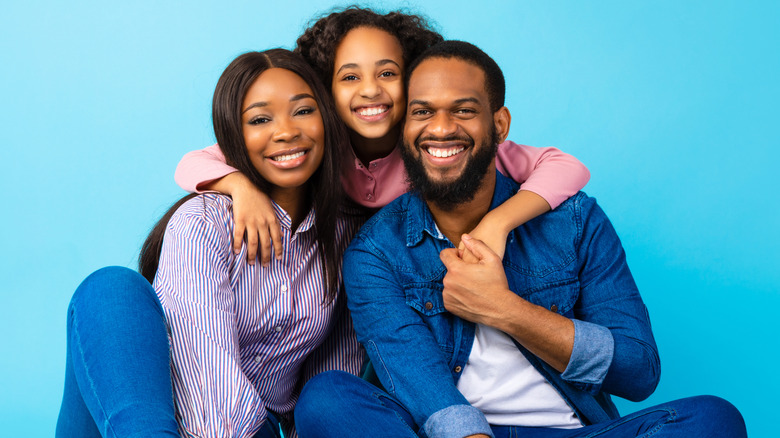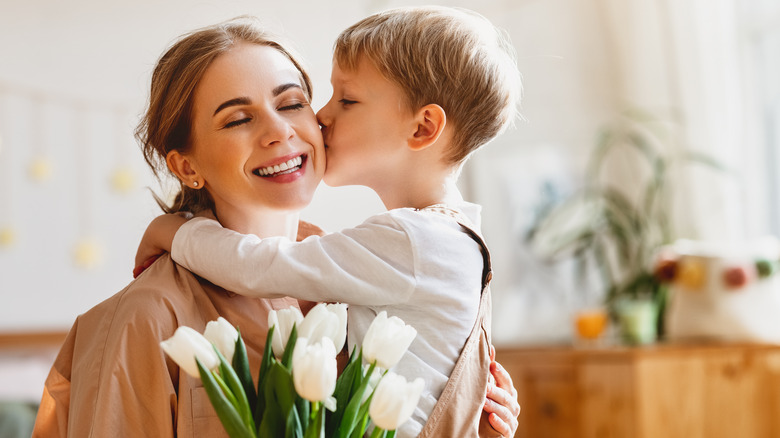Experts Reveal You Might Not Be Giving Your Kids As Many Hugs As They Need
Whether they're happy, sad, scared, or just want to feel seen and loved, kids need hugs — we all do! Emily Mudd, a counselor with the Cleveland Clinic Children's, told the Cleveland Clinic Newsroom that this need is instilled in us as soon as we enter the world. The principle of "kangaroo care" is all about mitigating the need for skin-to-skin contact that is carried into childhood, she said.
Even though the need for hugs is backed by science, CNN explained that kids may need more. This is largely due to the fact that children today are growing up in a world where a pandemic has forced them to keep their distance. Lisa Damour, a clinical psychologist in Ohio, told CNN that they were once able to "get a lot of comfort from the physical contact with their peers," but that has pretty much come to a halt. Because of this, it's important for parents to bring more hugs into the home.
Hugging your kids is good for their health
There are many intrinsic benefits of hugs – feelings of safety, self-esteem, and a boost of happiness are just a few "feel good" rewards that result from hugging (via The New Age Parents). In addition to general well-being, hugs also offer health benefits that position children to cultivate productive lives, according to HuffPost.
Oxytocin, a hormone released during hugs, helps combat sleep disturbances, stress, depression, and anxiety (via Medical News Today). Studies show that oxytocin is especially helpful for people with autistic spectrum disorder. Touch even encourages brain growth. A study conducted by Pediatrics Child Health showed that infants who engaged in tactile stimulation for 20 minutes a day for 10 weeks had improved brain development.
Despite these many benefits, though, you should never force a child to give or participate in a hug. "It's okay to keep a very simple message, for whatever the age of the child is, that 'you're in control of your body, and if you don't want to hug an aunt or an uncle at this gathering, that's okay, but you can find another way to show them affection,'" counselor Emily Mudd advised to the Cleveland Clinic. "Instead, you can share a special memory with them, give them a high-five; spend extra time with them, and be sure to explain this in advance to your relatives too."


